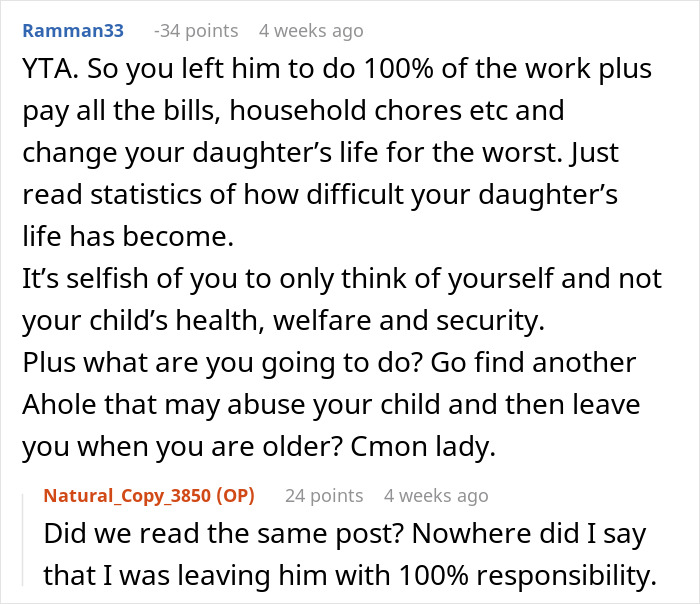Having kids and a household together does mean that every couple has to have the talk about, one way or another, who cooks and who eats. Unfortunately, all too often, men in relationships believe that because they work a nine-to-five, they don’t have to do anything else.
A woman asked the internet for advice when her husband refused to actually help her around the house despite her finding a job. We reached out to the woman who made the post via private message and will update the article when she gets back to us.
Asking your partner for help around the house is a reasonable thing to do

Image credits: freepik (not the actual image)
So one woman began to consider a divorce when her husband refused to pitch in
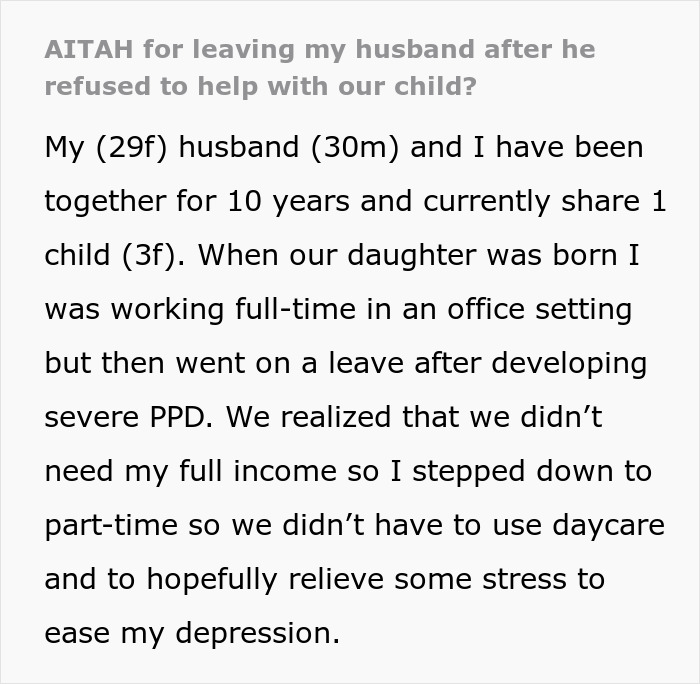
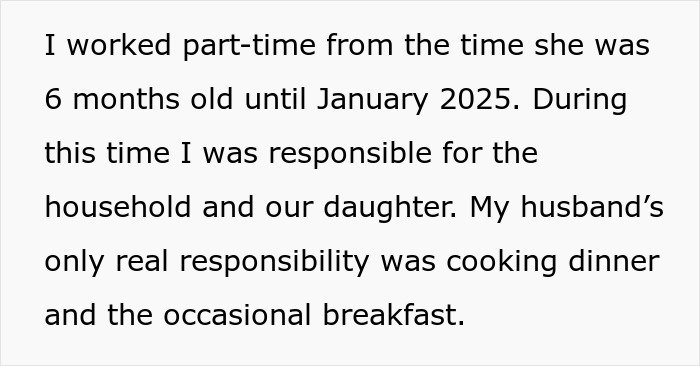


Image credits: Monika Grabkowska (not the actual image)
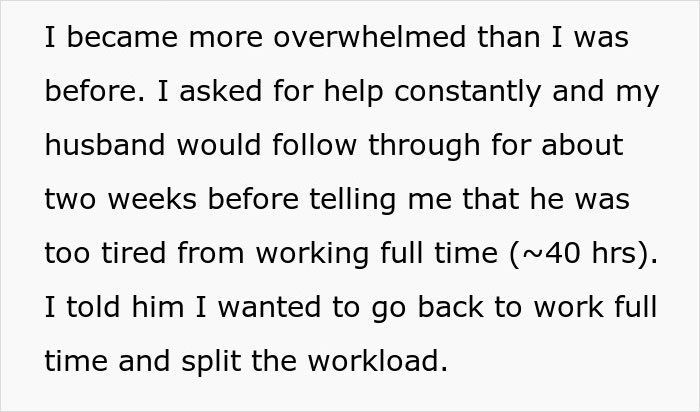





Image credits: freepik (not the actual image)



Image credits: Natural_Copy_3850
Some men are raised to think domestic work “isn’t for them”
More often than not, husbands who refuse to help at home or with the children are not doing so out of incompetence but rather under archaic assumptions or unconscious biases about gender roles. Boys may be raised in homes in which “women’s work” was child care, cleaning, and cooking and can discover that home work is not part of a man’s job description. As adults, they will then merely revert to the childhood behavior learned, relying on their partners to pick up the slack without complaint. We don’t actually know what is the origin of this man’s “weaponized incompetence,” but his utter refusal to help at all fits the bill.
This kind of behavior becomes especially destructive in today’s relationships, when both partners tend to work dual careers and have busy schedules. When one partner does the lion’s share of domestic duties and child-rearing tasks, they risk burnout. Resentment builds as they watch their partner come in from work and promptly fall onto the couch, free to relax, while they plunge into preparing dinners, bath times, and laundry. Over time, this imbalance can erode affection, spark constant bickering, and drain the sense of partnership that marriage is built on.
Not helping sends an implicit message about respect and values. A partner who won’t do laundry or read bedtime stories sends the message that their alone time is more important than family-duty time. This perceived lack of help can undermine trust and intimacy. The other spouse can feel more and more like a live-in maid, personal chef or paid baby-sitter instead of an equal partner. Even worse, in this story she directly asks for help and he turns her down. It might be cliche to invoke wedding vows, but “until death do us part,” does include actually helping your wife when she needs it.

Image credits: kitzcorner (not the actual image)
A successful marriage is a team effort
Kids notice as well. As boys mature to witness their father uninvolved in domestic work and disinterested in diapering and school projects, they learn strict stereotypes regarding work and men and women. Girls learn that emotional labor and domesticity are the sole responsibilities of women, reliving the same patterns of inequality into the next generation.
Breaking these tendencies requires awareness, communication, and action. Couples might start by openly discussing the disparity, no blame, then establishing fair chore charts or alternating parenting responsibility. The occasional timing of themselves and doing chores “together for 15 minutes” can create a new, cooperative pace. Husbands who make even small, habitual gestures, loading the dish-fighter, packing school lunches, reading a bedtime book, demonstrate dedication not just to the house but to the health of the relationship itself. Unfortunately, this husband doesn’t seem to stick the landing and just gives up a few weeks in.
Ultimately, marriage is all about partnership. A husband who won’t lift a finger isn’t just avoiding chores; he’s building emotional distance. A man who supports his portion of domestic life builds trust, reinforces mutual respect, and teaches partnership to his children. It has nothing to do with divvying up chores according to gender, it has everything to do with dividing life’s responsibilities in order to create a home where everyone feels nurtured, valued, and loved. This woman is quite correct to ask “why do I need him?” when she now has a job as well as all the responsibilities. At the very least, he’ll have to learn how to do it all himself if she goes through with it.

Image credits: Curated Lifestyle (not the actual image)
Some folks needed more information






Many thought she was right to be unhappy with this arrangement

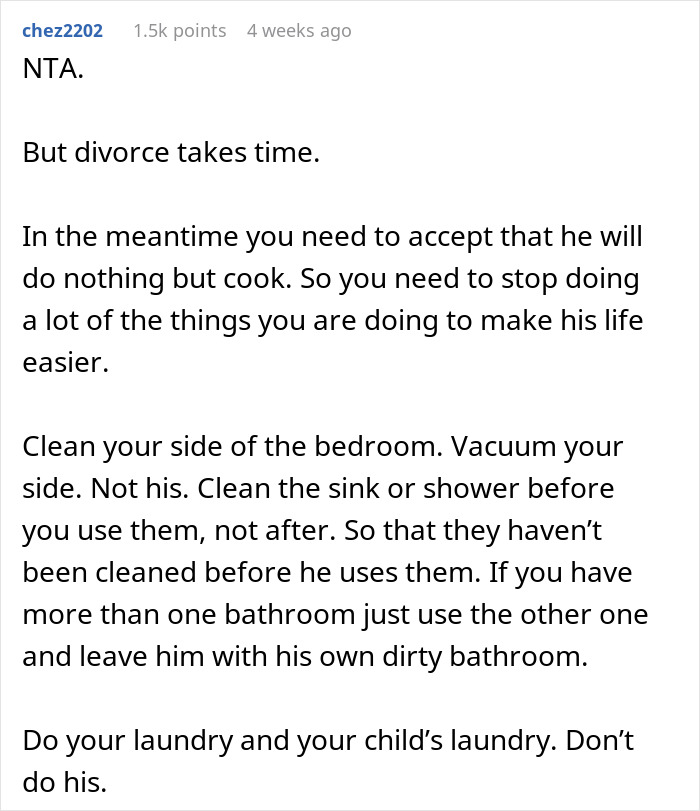





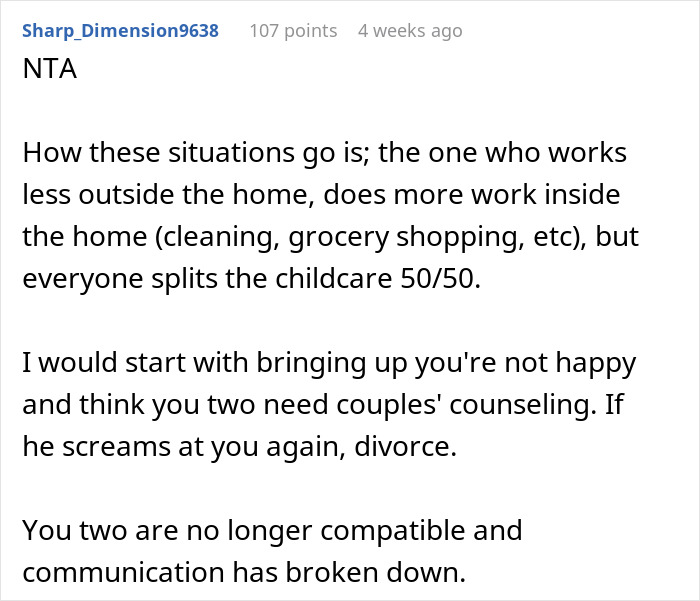






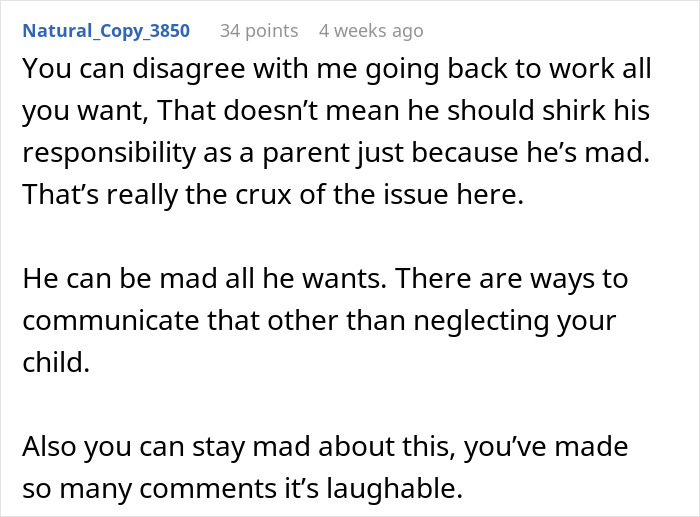
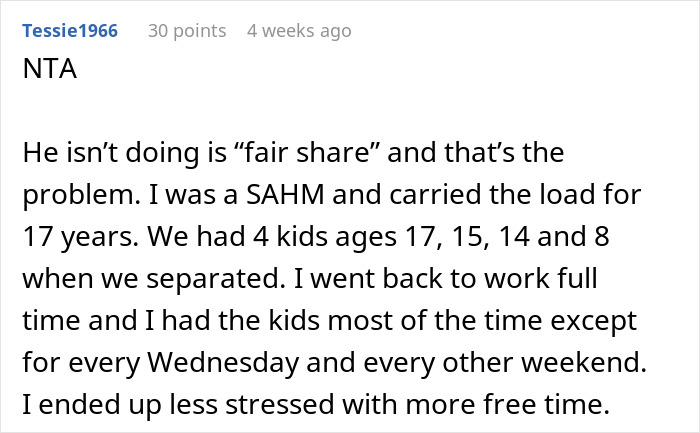

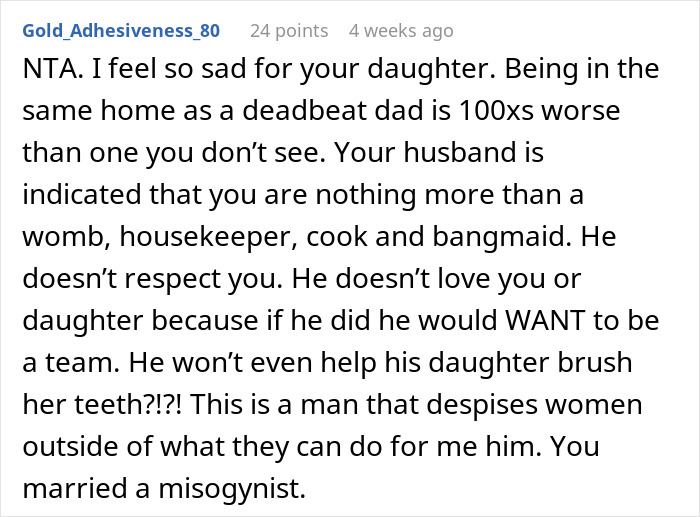



Some folks saw the husband’s point of view

